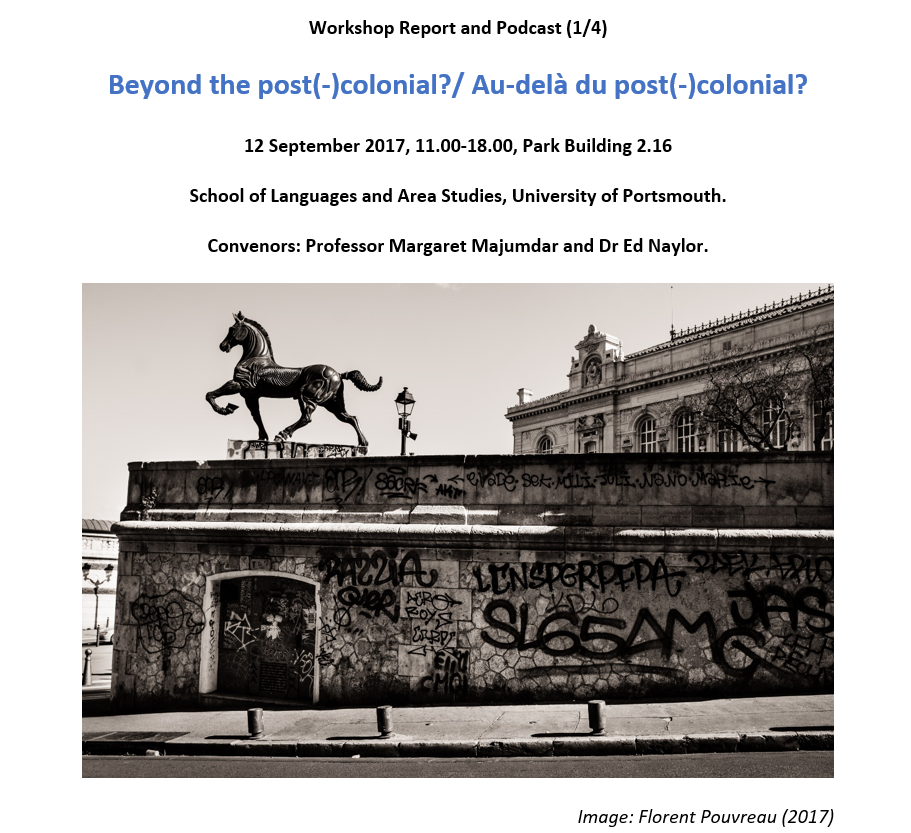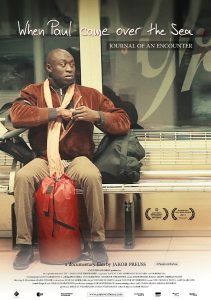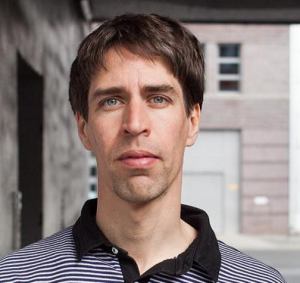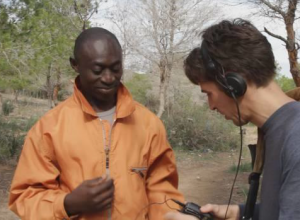Presentation:
Beyond the post(-)colonial?
More than fifty years have passed since decolonisation was achieved in most of the former colonies of the European colonial powers. During that time, a substantial body of critical work has been produced under the rubric of ‘postcolonial theory’, which has in turn been the subject of extensive debate and critique. The reception and influence of this postcolonial ‘turn’ has also varied widely between academic disciplines and between countries, with France often viewed as an outlier in comparison to developments in the United States and Britain. The current conjuncture of political and social upheaval seems an appropriate moment to take stock and to ask a series of questions. Does the postcolonial framework of analysis still provide a useful set of concepts for the understanding of the modern world? Or have the flaws in this theoretical corpus now definitively outweighed the insights it facilitated? Has history now moved on in different directions requiring radically new interpretative approaches (e.g. global, decolonial)? How will European colonial imperialism and its demise be viewed in a longer historical perspective? How do these questions impinge on the understanding, not just of the European past in its relations with the rest of the world, but also of potential future(s) for Europe?
Au-delà du post(-)colonial?
Plus d’un demi-siècle a passé depuis la décolonisation de la plupart des territoires colonisés par des puissances européennes. Cette période a été marquée par la création et la publication d’un corpus important qu’on a pu catégoriser sous le nom de la ‘théorie postcoloniale’, un corpus qui a été l’objet de nombreux débats et critiques par la suite. De même, la réception et l’influence du phénomène ‘postcolonial’ n’ont pas été les mêmes selon les disciplines scientifiques ou les contextes nationaux, et à cet égard la France est souvent décrit comme un cas à part en décalage par rapport aux Etats-Unis et au Royaume Uni. La conjoncture actuelle, avec ses sursauts sociaux et politiques, nous semble le moment de tenter un bilan et de poser un certain nombre de questions. Cet appareil théorique peut-il toujours fournir des concepts et des outils qui restent valables pour ceux qui veulent comprendre le monde actuel ? Le bilan de ces innovations théoriques reste-t-il plutôt positif ? Ou les faiblesses de cette théorie se sont-elles avérées plus importantes que les découvertes qu’elle aurait facilitées ? L’histoire elle-même a-t-elle évolué dans des sens différents, exigeant des approches interprétatives radicalement différentes (par exemple, histoire globale ou décoloniale) ? Comment penser aujourd’hui la colonisation européenne et sa fin, dans une perspective historique plus longue ? Quels sont les enjeux de ces débats, non seulement pour une nouvelle analyse des rapports historiques de l’Europe avec le monde plus large, mais aussi pour des perspectives ouvrant sur l’avenir, ou les avenirs, de l’Europe ?
Event report:
This workshop brought together colleagues from several universities in the UK and France for a discussion and exchange around current directions in postcolonial theory, the history of decolonization and academia’s relationship to wider social issues around anti-racism, cultural diversity and discrimination. At the same time, the occasion was a celebration of the career of our distinguished colleague Margaret Majumdar and her appointment as professor emeritus at the University of Portsmouth.
The event was generously supported by the Leverhulme Trust and the Centre for European and International Studies Research (CEISR). Participants included UoP staff and PhD students from SLAS and SSHLS, members of the Francophone Africa and CRaB clusters, alongside academics from the Universities of Westminster, South Wales, Lyon (France), Chichester, and University of West England. The format of the event was three panels with short opening contributions followed by a wider discussion: the three panel themes were ‘The remaking of France? New histories of decolonisation’; ‘Theorising postcoloniality in cultural and literary studies’ and ‘The postcolonial beyond academia’. Each panel and Q&A lasted around 90 minutes. The workshop concluded with an open roundtable discussion that brought out a number of key themes, including the importance of different national academic and public contexts in determining the reception of postcolonial theory; the challenges of engaging with, and putting academic research in the service of, wider societal debates on racism, power and representation; the ongoing challenge of opening up academic forums to researchers from the global South.
Podcast: The three panel sessions and discussions were recorded and have been edited into three podcasts which will be posted to the blog over the coming days.






